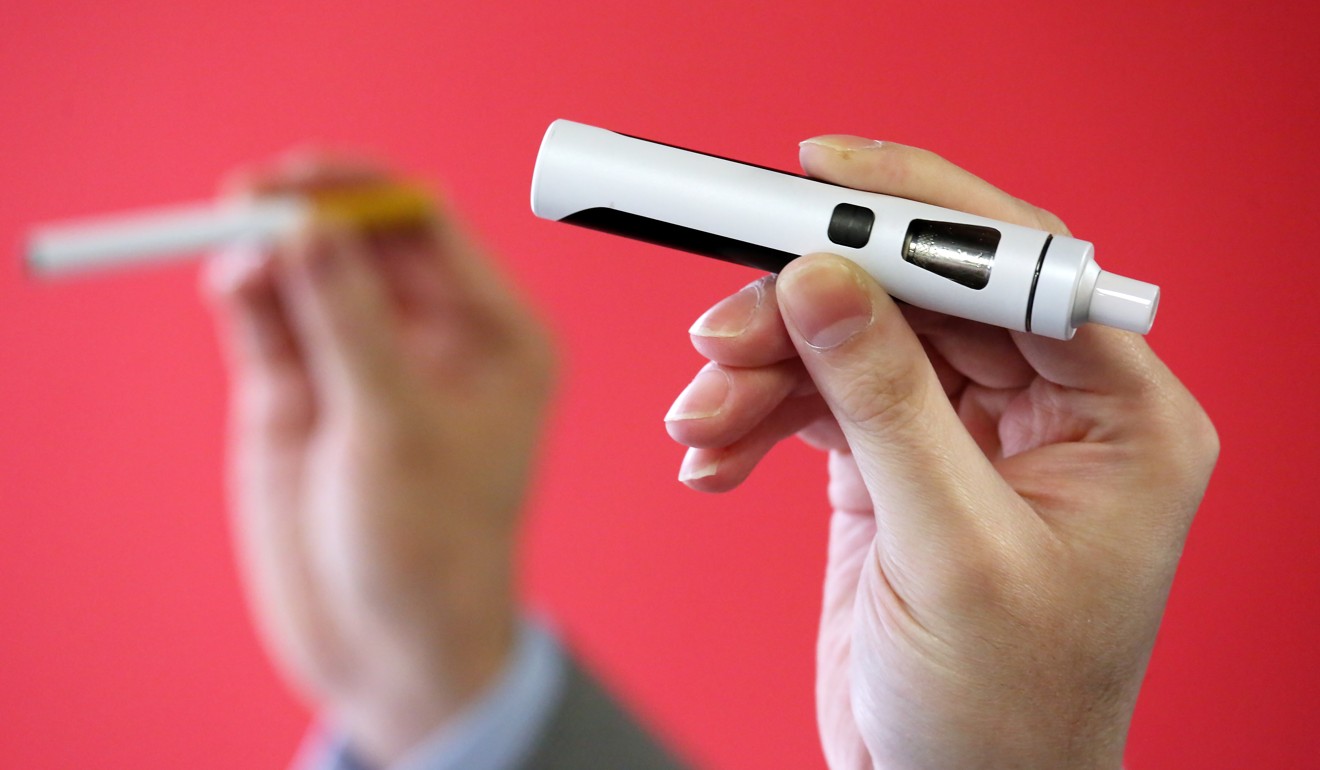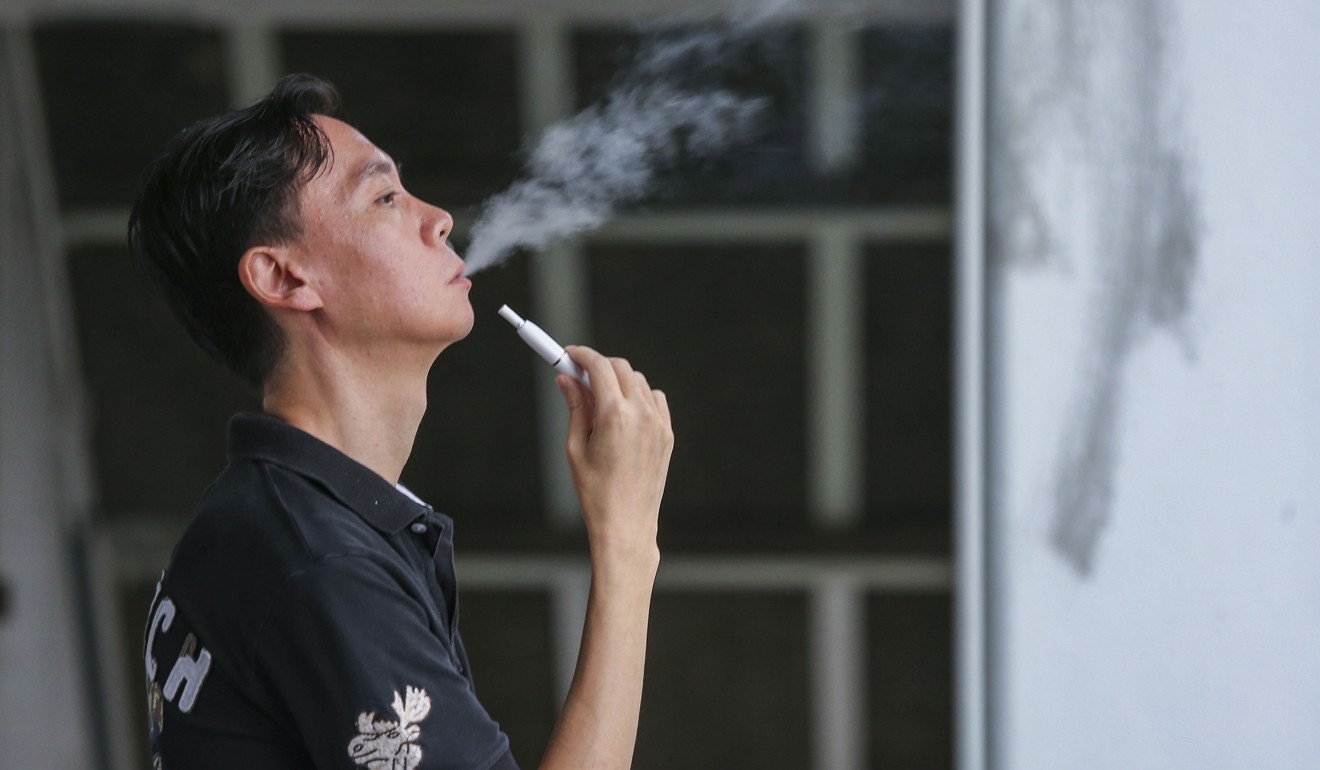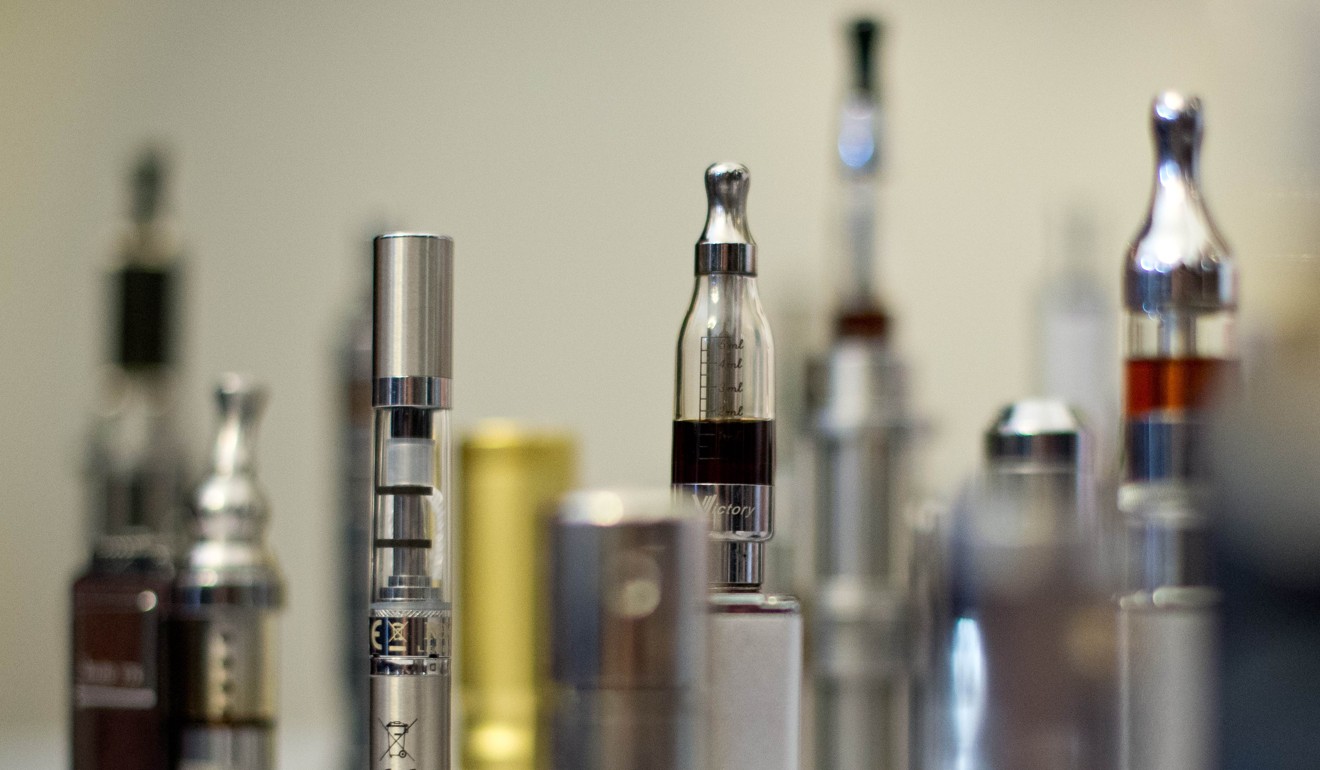
Watered-down proposals to regulate e-cigarettes in Hong Kong fail to impress either tobacco industry or health experts
Trade argues measures are too harsh on innovative products but anti-smoking body counters that they should not be treated any differently than tobacco
A move to tax these new products in the same way as traditional cigarettes has prompted much discussion, as the government paper did not detail the duty size or how it would be implemented.
The sale of e-cigarettes, heat-not-burn products and herbal cigarettes to minors would be banned, packaging would require health warnings, and all advertising would be prohibited under the proposals.

The tobacco industry argued that the plans were too harsh on innovative products, but health experts countered that they were too lax on what were harmful goods.
“If the products are available in the market, they should be taxed in the same way as tobacco,” the city’s anti-smoking body, the Hong Kong Council on Smoking and Health, said.
“Their selling price should not be lower than cigarettes so that the public will not be attracted to using them just because they are cheap.”
More smokers in Hong Kong turning to e-cigarettes, survey reveals
A pack of cigarettes on average costs HK$57 (US$7.30) in Hong Kong, of which HK$38 is tax.
The duty on each pack is 67 per cent of its retail price, lower than the 75 per cent recommended by the World Health Organisation. The tax was last increased in 2014.
But the Coalition on Tobacco Affairs, an umbrella group of tobacco producers, said taxing the new products as if they were cigarettes was unfair as e-cigarettes did not contain tobacco.

“E-cigarettes do not contain tobacco content and have very different health risks,” coalition chairwoman Christine Hu said. “They should not put the same health warnings on the packs, or tax them in the same way as cigarettes.”
The group criticised the government for using an outdated approach to regulate the products, which Hu said were a less harmful alternative for adults who wanted to quit smoking.
“If the selling price of these products is the same, then the public will have no incentive to change from smoking to these less harmful products,” she added.
Vaping and e-cigarettes: dangerous, or a safe way to quit?
But Dr Thomas Tsang Ho-fai, president of the College of Community Medicine, rejected the idea.
Tsang, a former head of the Centre for Health Protection, said that claiming these products were less harmful than tobacco was misleading, as there was no tolerance threshold for cancer-causing substances. However low the level, it was possible it could cause cancer, he said.

Tsang said the latest proposals gave the impression the government was taking a more relaxed stance than three years ago, and he believed officials should explain why regulating such products was better than banning them.
“From a public health perspective, the best solution is still a complete ban on such products. But given that nothing has been done for three years already, taking this step is better than none.”
Dr David Lam Tzit-yuen from the Medical Association warned that even second-hand smoke from so-called vaping products was harmful.
Since vaping smoke often comes with fruity or flowery flavours, the public may be unaware of the risk when inhaling them
“But since vaping smoke often comes with fruity or flowery flavours, the public may be unaware of the risk when inhaling them,” Lam said.
Worldwide, the use of e-cigarettes – known as vaping – has become a multibillion-dollar industry with hundreds of brands, according to the WHO. Locally, vaping products are commonly found in trendy shopping centres and cost between HK$100 and HK$500.
Announcing the proposals, Secretary for Food and Health Sophia Chan Siu-chee said it was the government’s target to push the smoking rate below last year’s 10 per cent, one of the lowest figures in the world.
The proposals will be subject to debate at Legco’s health panel meeting on Tuesday. Both the tobacco firms and health groups said they would continue to lobby lawmakers and officials to revise the plan.

